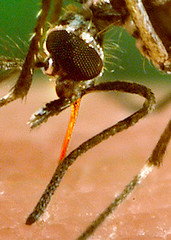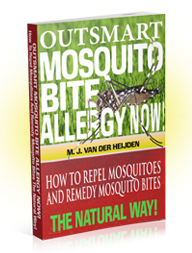Genetically Modified Mosquitoes to Help Combat Dengue Fever
Genetically modified mosquitoes have been a source of interest for the scientific community. Scientists have been studying the introduction of genetically modified mosquitoes into the wild mosquito population. These genetically modified and engineered insects are designed to help dispatch and get rid of the harmful dengue virus carrying mosquitoes and the dreaded Dengue Fever.
How does it work? Simple. These genetically modified mosquitoes when released and mixed with the wild mosquito population will be mating, thus producing offspring. The modified genes in the mosquitoes that will be passed to its eggs and larvae are like time bombs ticking. You see, [pullquote]these special mosquitoes were designed to need an antibiotic called Tetracycline in order for them to pass through their larvae stage. [/pullquote]Here’s the problem for the part of the genetically modified mosquito larvae, Tetracycline is not available in the wild. Without the antibiotic that they feed on, the larvae will starve and eventually die before they become mature enough to bite and pass the dengue virus.

Aedes aegypti bloodfeeding detail proboscis CDC Ga…—jentavery (Flickr.com)
Dengue fever is an infectious disease caused by the dengue virus and is transmitted principally by Aedes aegypti mosquitoes. The disease’s symptoms include fever, headache, painful muscles and joints and skin rashes that are similar to that of measles. Dengue fever can be life-threatening in the form of dengue hemorrhagic fever, which may result in bleeding, blood platelets in very low levels and blood plasma leakage, or may result into dengue shock syndrome, where dangerously low blood pressure occurs and there is no commercially available vaccine for this disease. The only way to prevent its widespread is through reduction of the dengue virus carrying mosquitoes’ habitat which results in reduction of their population thus limiting bite exposure.
This idea may work and may help eradicate the dengue carrying mosquitoes along with the dengue virus but there are issues that concern this that makes it kind of an unwise decision. First, the company that is responsible for the development of these genetically engineered or modified organisms (mosquito) admitted that in their laboratory tests, some of the offspring did not self-destruct. Second issue would be the possibility that a far worse species takes over and bring more harm to the human population. Another issue is the effect of the loss of the Aedes aegypti mosquito population in the ecosystem especially to the known natural predators of mosquitoes like bat. Other speculations and issues include the idea that since these modified bloodsuckers are exposed to Tetracycline, there are chances that some individuals might be allergic to its bite which is also a serious threat.
Filed under: Mosquito Bites Treatment
Like this post? Subscribe to my RSS feed and get loads more!



Leave a Reply
You must be logged in to post a comment.